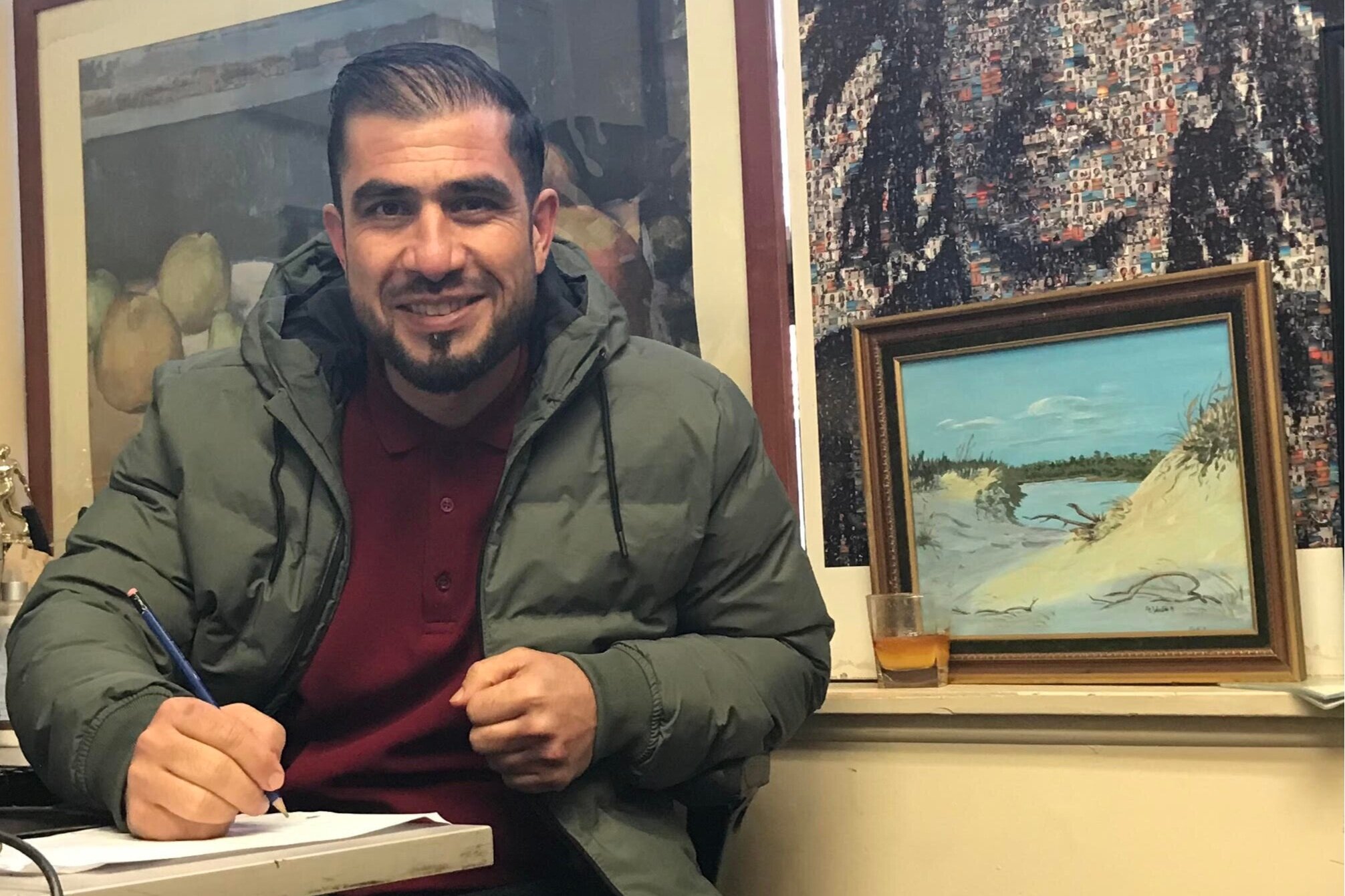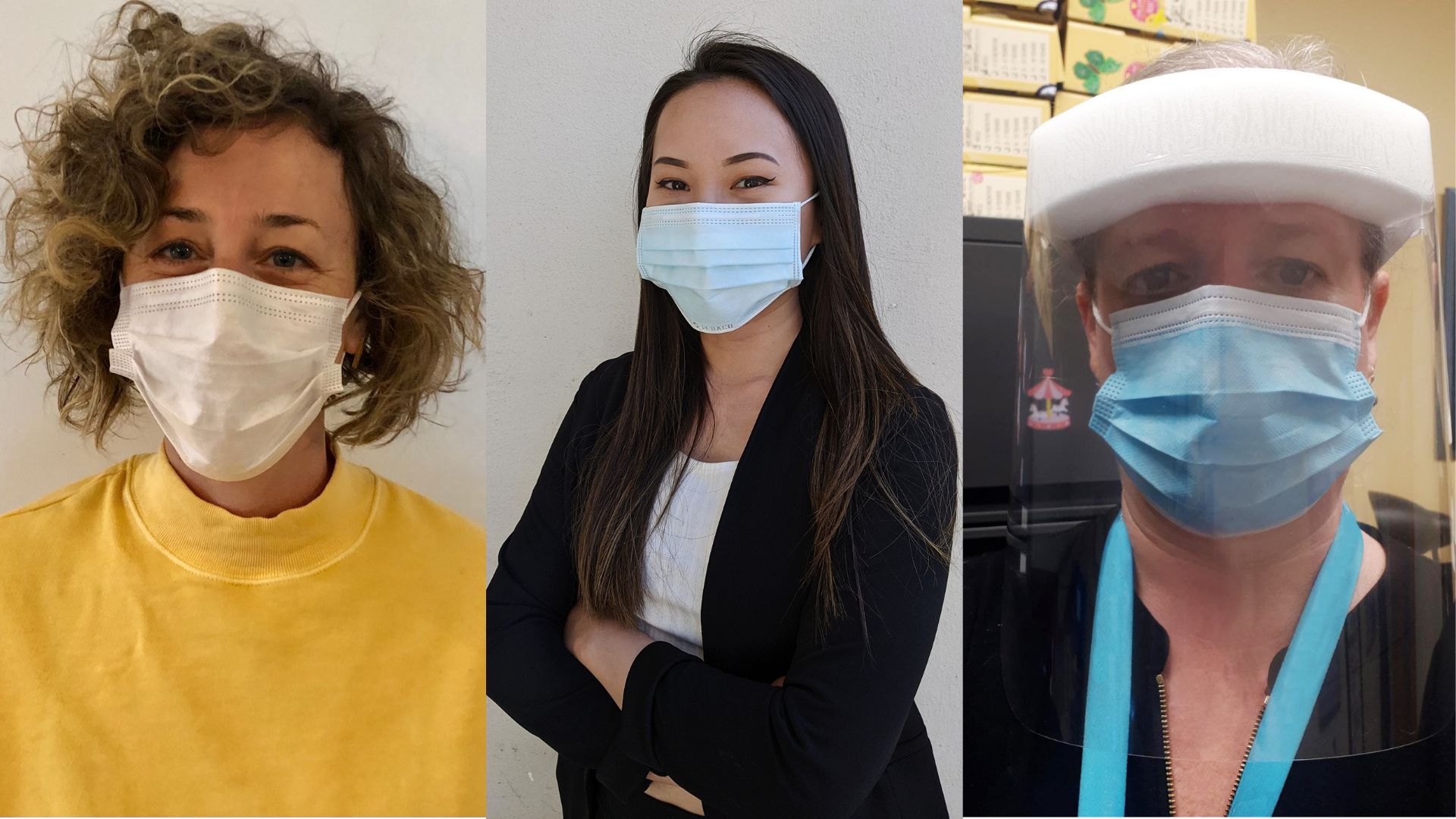Matin Zahid, who lives in Taylor-Massey, received support from ETHP’s COVID-19 Case Management Program when he was diagnosed with COVID-19 in January.
Update: The COVID-19 Case Management Program was available from November 2020 to October 2021 and is no longer running.
When Matin Zahid tested positive for COVID-19 in January, he had one thing on his mind: family. “It impacted me mentally,” he says. “My family in Afghanistan, especially my wife, was really worried.”
Following his diagnosis, Matin was required to self-isolate for 10 days in the Taylor-Massey apartment he shares with a roommate. Matin, who is a newcomer to Canada, says this presented some challenges.
“I worked at the Ministry of Public Health Afghanistan when the COVID-19 pandemic started, so I was aware of the importance of self-isolating and other procedures that are necessary to help prevent the spread of this virus,” Matin says. “But, as someone who experiences anxiety and depression, I was also concerned about the pressures that this would add.”
It’s this reason why Matin agreed to participate in East Toronto Health Partners’ (ETHP) COVID-19 Case Management Program. Launched in November, the program connects individuals in East Toronto who have tested positive for COVID-19 with self-isolation supports in their local community.
The program is staffed by a team of registered nurses, a social worker, health promoter, mental health counsellor and other health care and social services professionals from ETHP member organizations and other community partners. These include South Riverdale Community Health Centre (SRCHC), Flemingdon Health Centre (FHC), Health Access Thorncliffe Park (HATP) and East End Community Health Centre.
Together, the team addresses the needs of people who’ve tested positive for COVID-19 and need to self-isolate. This involves monitoring clients’ symptoms through regular phone check-ins; connecting clients with contactless food and grocery delivery, such as that available at TNO — The Neighbourhood Organization and the Scarborough Centre for Healthy Communities (SCHC); and assessing clients’ financial situation so the team can assist them with accessing government supports like the Canada Recovery Sickness Benefit (CRSB).
If other individuals in the client’s household need to quarantine or have been infected, the COVID-19 Case Management team also provides support for these individuals.
“Receiving a positive COVID-19 diagnosis can be an overwhelming, scary experience,” says Erika Nelson, a social worker at SRCHC who is part of the COVID-19 Case Management team. “So having someone there who is calling to check in on a regular basis is a huge reassurance for people.”
Clients are informed of ETHP’s COVID-19 Case Management Program when they test positive for COVID-19 at Michael Garron Hospital’s (MGH) COVID-19 Assessment Centre or one of ETHP’s temporary testing sites in East Toronto. They’re phoned by an infectious disease physician who shares information about how they can manage their symptoms and protect others.
During this call, the physician lets the individual know about the COVID-19 Case Management Program and asks them if they would like this support. If the individual consents, the physician shares their phone number with the COVID-19 Case Management team who then reach out to the client.
To date, the program has supported more than 3,000 individuals in East Toronto who have tested positive for COVID-19 and received more than 600 referrals.
“The self-isolation period can be a difficult time for some people. Some aren’t prepared for it or they don’t know what to expect,” says Lucille Vuong, a registered nurse (RN) at SRCHC who is part of the COVID-19 Case Management team. “Because there’s this stigma attached to COVID-19, some people may also be reluctant to ask their family and friends for help. So our job is to identify what supports they need and make sure these supports can be safely delivered to the individual.”
Lucille says clients in ETHP’s COVID-19 Case Management Program vary in age and come from all backgrounds. Some live by themselves; some live with many members of their family; and some, like Matin, have roommates.
She says, oftentimes, clients are not aware there are supports in the community that are available to them. Sharing this information “empowers” them in their path to recovery. “It equips them with knowledge they can share with others who may be facing a similar situation,” Lucille says. “And it lets them know they’re not alone, that they haven’t been left to fend for themselves.”
Another key component of the COVID-19 Case Management Program is providing clients with emotional support during their self-isolation period.
Matin, in particular, was connected to mental health counselling at East End Community Health Centre. He says being connected with that support was what he appreciated most from ETHP’s COVID-19 Case Management Program.
“I miss my loved ones back home,” he says. “So the mental health coordination I received was really supportive and good for me.”
Marilyn Van Der Kooi, a mental health counsellor at East End Community Health Centre, says the many unknowns associated with COVID-19 can take a toll on an individual’s health.
“When you’re diagnosed with COVID-19, there are a lot of questions,” she says. “What does this mean for my health? What does this mean for my family, for my work? This adds to the overall anxiety people may already be feeling.”
Although the COVID-19 Case Management Program is designed to assist clients during their initial self-isolation or quarantine, the team continues supporting some clients past this period on a case-by-case basis.
It’s all about “working around what the client feels most comfortable with,” Lucille says, and ensuring they and the individuals in their household feel safe, healthy and confident after their recovery. Erika says the program’s strength is its ability to adapt to each individual’s and household’s unique needs.
“We follow up with clients until they’re well and, in some cases, even after that,” she says. “We’re really able to customize it according to what people need. This helps ensure they feel supported by their community and local healthcare system in a way they perhaps haven’t been in the past.”
“It’s a beautiful project to be part of because of the collaboration involved,” Marilyn adds. “It’s very responsive to the needs of the individual and the community.”
For Matin, the COVID-19 Case Management Program has proved invaluable. Now recovered from COVID-19, he says he’d like to help spread the word about the program in his community so people know there is support available to them if they test positive for the virus.
“It’s very helpful, especially for people who are new here and may not know the health system very well,” he says. “The program has been very supportive and, for me, beneficial. I would recommend it for individuals who need it.”


